12 Symptoms of Stomach Cancer Explained as 1000lb Sisters Star Katie Slaton Dies Aged 37

Reality TV personalities live their struggles in public view, but some battles remain hidden until it’s too late. Katie Slaton, beloved cousin of 1000lb Sisters stars Amy and Tammy, fought a private war against an aggressive enemy that strikes 30,000 Americans each year. Her recent passing at age 37 has brought renewed attention to a cancer that often remains silent until advanced stages.
Medical experts warn that this particular cancer presents a cruel paradox. Early detection offers hope for recovery, yet symptoms rarely appear when treatment works best. Katie’s story serves as both a heartbreaking reminder of life’s fragility and a wake-up call about recognizing warning signs that too many people ignore.
Reality TV Star’s Battle Raises Stomach Cancer Awareness
Katie Slaton appeared on season five of TLC’s popular show 1000lb Sisters, sharing screen time with her famous cousins during their weight loss journeys. Family members described her as “the life of the party” and a “force to be reckoned with” who brought joy to everyone around her.
Earlier this year, Katie received a devastating diagnosis: stage four gastric adenocarcinoma, commonly known as stomach cancer. Despite undergoing chemotherapy treatments, she lost her battle on Monday, August 25th. Her cousin Amanda Halterman broke the tragic news on social media, asking for prayers and support during this difficult time.
Katie’s death highlights a sobering reality about stomach cancer. When caught early, treatment success rates remain encouraging. However, most cases go undetected until the disease reaches advanced stages, making recovery far more challenging.
Gastric adenocarcinoma, Katie’s specific diagnosis, develops from gland cells in the stomach’s innermost lining. According to the American Cancer Society, this type accounts for 90 to 95 percent of all stomach cancers, affecting approximately 30,000 Americans annually.
Hidden Cancer That Often Goes Undetected Until Advanced Stages
Stomach cancer presents medical professionals with a diagnostic challenge. “Stomach cancer doesn’t always cause symptoms in its early stages,” according to Mayo Clinic experts. In fact, symptoms might not appear until the cancer reaches advanced stages, when treatment options become more limited.
Early-stage stomach cancer offers the best prognosis for patients. Many people with small stomach cancers can expect complete recovery when diagnosed promptly. Unfortunately, most stomach cancers are discovered after the disease has progressed significantly.
Cancer that grows through the stomach wall or spreads to other body parts becomes much harder to cure. Advanced stomach cancer may metastasize to lymph nodes, liver, or other organs, creating additional complications for treatment teams.
Medical professionals emphasize that stomach cancer makes up about 1.5 percent of all new cancer cases nationwide. While relatively rare compared to other cancers, its silent progression makes awareness of symptoms particularly important for early intervention.
Twelve Warning Signs Your Body Sends Before It’s Too Late
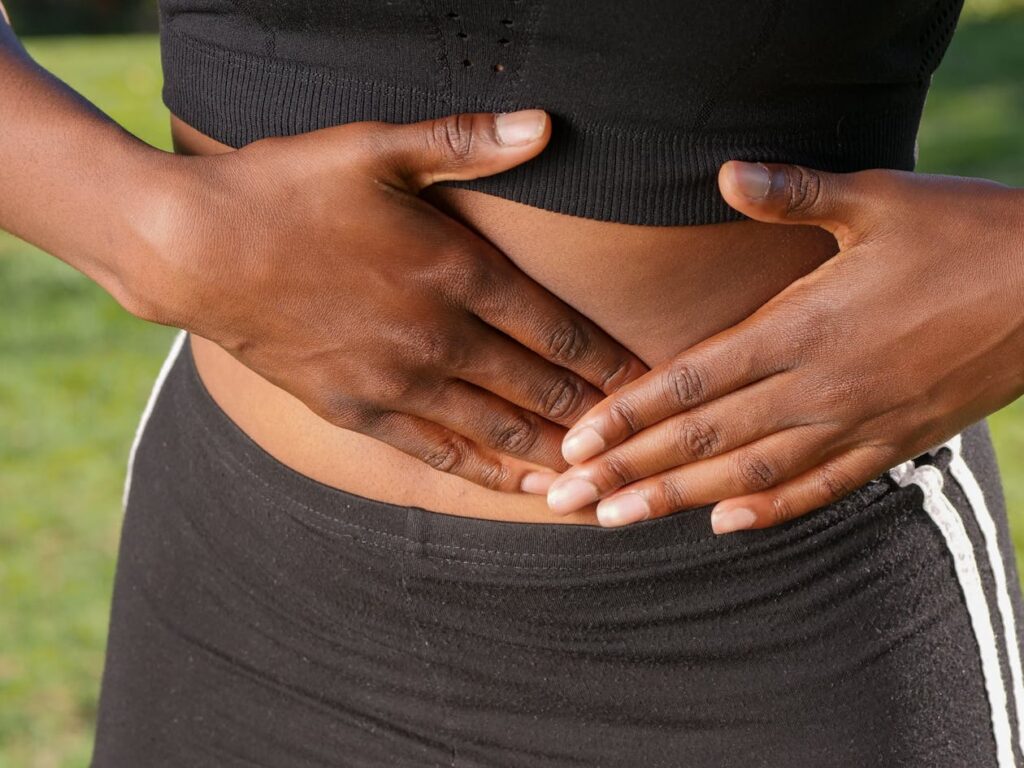
Medical experts have identified twelve key symptoms that may signal stomach cancer development. Each symptom deserves attention, especially when multiple signs appear together or persist for weeks.
Many people dismiss these warning signs as common stomach troubles. However, stomach cancer symptoms often start small and grow worse over time. Recognizing these twelve signs could save your life.
1. Food Gets Stuck Going Down
Difficulty swallowing creates a sensation that food remains lodged in your throat or chest area. Solid foods become particularly troublesome, requiring extra effort to push them down into your stomach.
People often describe feeling like bread, meat, or other solid foods stop halfway down their throat. You might need to drink more liquid with meals to help food pass through. Some people start cutting food into smaller pieces or avoiding certain textures altogether.
Swallowing problems usually begin with occasional episodes during meals. Over time, these episodes become more frequent and affect a wider variety of foods. Eventually, even soft foods or liquids may cause discomfort.
Medical professionals call this condition dysphagia. Unlike occasional choking on food, dysphagia represents a persistent problem that worsens gradually over weeks or months.
2. Stomach Pain That Won’t Quit
Persistent indigestion causes ongoing pain or discomfort in your stomach area. Unlike normal digestive upset that goes away after a few hours, cancer-related indigestion continues for days or weeks.
Regular indigestion remedies stop working when stomach cancer causes the problem. Over-the-counter medications like antacids provide little or no relief. Changing your diet doesn’t help either.
Pain may feel like a burning sensation, dull ache, or gnawing discomfort in your upper abdomen. Some people describe it as feeling like their stomach is “eating itself” or constantly churning.
Episodes of indigestion become more frequent and last longer as cancer progresses. What once happened occasionally after large meals now occurs daily, even with small amounts of food.
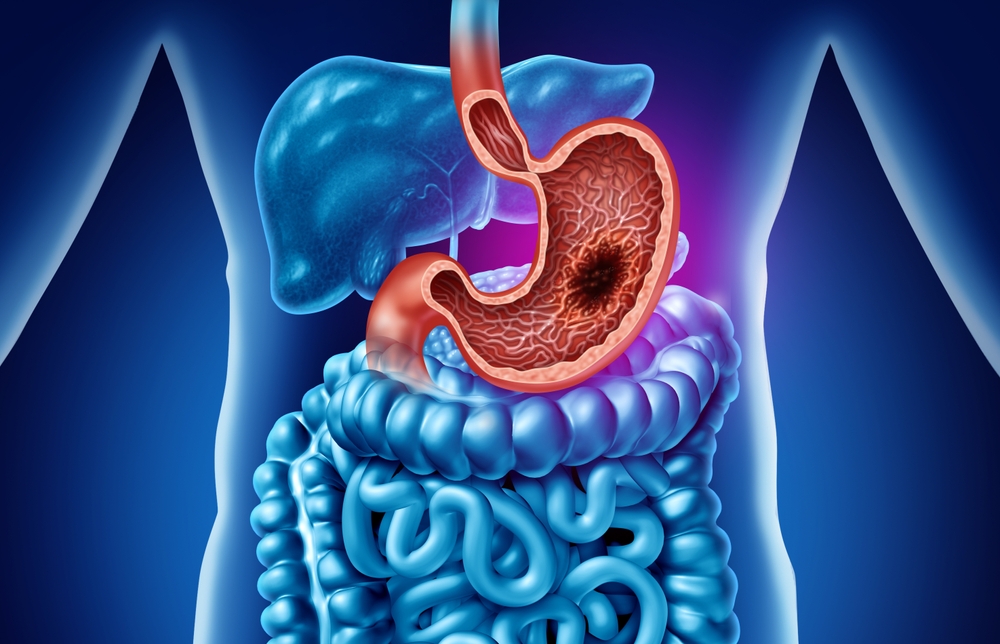
3. Chest Burns That Antacids Can’t Touch
Persistent heartburn produces a burning sensation in your chest that refuses to respond to normal treatments. Stomach acid travels up toward your throat, creating intense discomfort that lifestyle changes can’t control.
Regular heartburn remedies fail to provide relief when cancer causes the problem. Antacids, acid reducers, and prescription medications offer little help. Avoiding spicy or acidic foods doesn’t reduce symptoms either.
Burning sensations may spread from your chest up into your throat or down toward your stomach. Some people feel like acid is constantly washing up from their stomach, creating a sour or bitter taste in their mouth.
Heartburn episodes become more severe and frequent over time. Sleep becomes difficult because lying down makes symptoms worse. Even bland foods start triggering burning sensations.
4. Constant Queasiness Ruins Your Day
Nausea creates persistent feelings of sickness that make food unappealing or disgusting. Unlike occasional stomach bugs, cancer-related nausea continues day after day without clear triggers.
Constant queasiness often worsens after eating, making meals an unpleasant experience. Food smells that once seemed appetizing now trigger waves of sickness. Even thinking about certain foods may cause nausea.
Morning nausea affects many stomach cancer patients, similar to pregnancy sickness but lasting much longer. Some people feel queasy all day long, regardless of when they last ate.
Nausea may come and go in waves or remain constant for hours. Simple activities like riding in cars, strong perfumes, or cooking smells can trigger severe episodes.
5. Throwing Up Becomes Your New Normal
Vomiting episodes occur regularly, often after meals or when your stomach feels full. Unlike food poisoning or stomach flu, cancer-related vomiting continues for weeks without getting better.
Regular vomiting after meals prevents proper nutrition and leads to dehydration. You might throw up shortly after eating or experience dry heaving when your stomach is empty. Some people vomit blood or material that looks like coffee grounds.
Vomiting patterns vary among patients. Some people throw up every time they eat, while others experience episodes several times per week. Food may come back up partially digested or completely unchanged.
Anti-nausea medications often provide limited relief when cancer causes vomiting. Episodes may occur at predictable times, like after meals, or strike without warning throughout the day.
6. Upper Belly Pain Steals Your Appetite
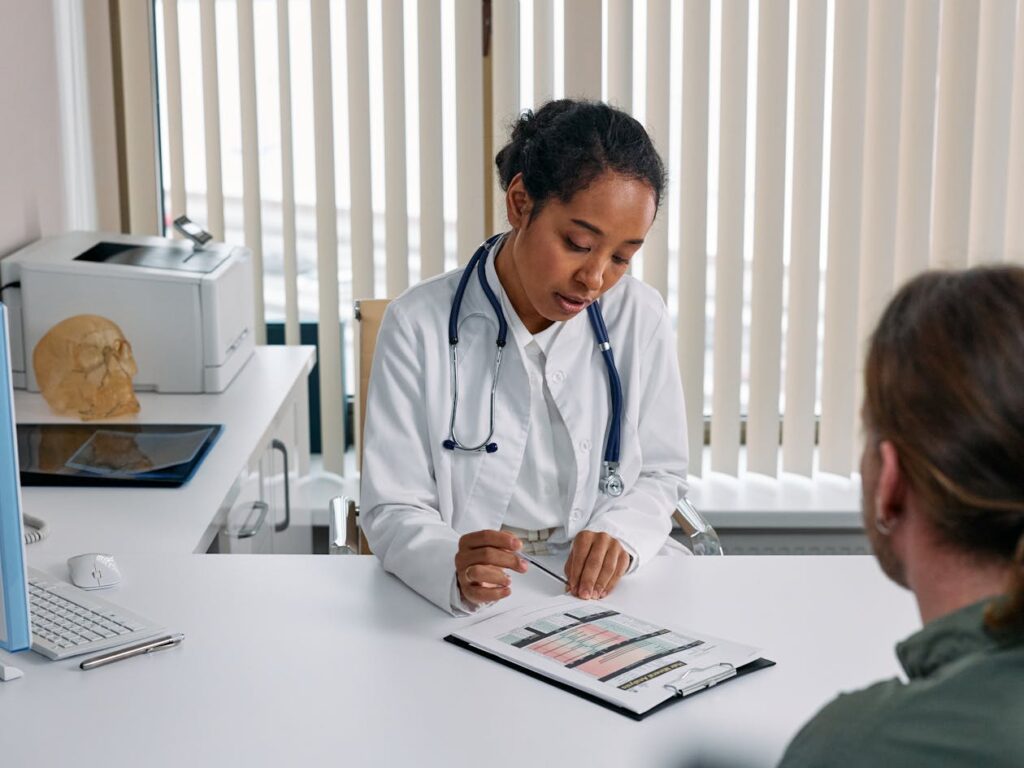
Abdominal pain or discomfort typically occurs in your upper belly area, just below your ribs where your stomach sits. Pain sensations range from dull, constant aching to sharp, stabbing episodes that take your breath away.
Pain often gets worse after eating, making meals something to dread rather than enjoy. Some people describe feeling like their stomach is being squeezed or twisted. Others experience burning or gnawing sensations that never go away.
Pain location may shift around your upper abdomen or radiate to your back or chest. Pressure from clothing or bending over can make discomfort worse. Even gentle touching of your stomach area may cause pain.
Over-the-counter pain relievers rarely help stomach cancer pain. Episodes may last for hours or persist constantly throughout the day, interfering with sleep and daily activities.
7. Your Belly Stays Swollen After Small Meals
Bloating after meals creates uncomfortable swelling that doesn’t go away like normal post-meal fullness. Your stomach may look visibly distended and feel tight or stretched, even after eating tiny portions.
Normal bloating disappears within a few hours of eating. Cancer-related bloating persists much longer, sometimes lasting all day or night. Your clothes may feel tight around your waist even when you haven’t eaten much.
Bloating may be accompanied by feelings of pressure or heaviness in your abdomen. Some people describe feeling like their stomach is “full of air” or “about to burst.” Gentle movement or walking doesn’t relieve the swelling.
Bloating episodes become more severe and frequent as cancer progresses. What once happened only after large meals now occurs with normal-sized or even small portions of food.
8. Small Bites Fill You Up Completely
Feeling full after eating only small amounts means your normal meal portions now seem enormous. You feel completely satisfied or uncomfortably stuffed after consuming far less food than usual.
Early satiety, as doctors call this symptom, makes maintaining proper nutrition difficult. Half a sandwich might leave you feeling like you’ve eaten a full meal. Small snacks create the same fullness you once felt after dinner.
Forced eating becomes necessary to maintain your weight and energy levels. You might need to eat smaller, more frequent meals throughout the day instead of normal breakfast, lunch, and dinner patterns.
Fullness sensations may be accompanied by discomfort or pain when you try to eat more. Your stomach seems to have shrunk, though the cancer is actually taking up space or affecting normal stomach function.
9. Food Stops Being Interesting or Appealing
Loss of appetite means you don’t feel hungry at normal meal times, even when you haven’t eaten for hours. Foods that once excited you now seem completely unappealing or even disgusting.
Favorite meals lose their appeal when stomach cancer develops. Pizza, chocolate, or other comfort foods that once brought joy now hold no interest. You might look at food and feel nothing, or even feel repulsed.
Appetite loss often starts gradually, with certain foods becoming less appealing before spreading to all types of food. You may need to force yourself to eat to maintain your strength, even though nothing tastes good.
Weight loss often follows appetite loss as you consume fewer calories without realizing it. Family members may notice you’re eating less before you recognize the change yourself.
10. Pounds Disappear Without Trying to Lose Weight
Unexplained weight loss means losing substantial pounds over several months despite eating normally. You’re not dieting or exercising more, yet your clothes become loose and people comment on your appearance.
Rapid weight loss can be dramatic, with some people losing 10-20 pounds in a few months without trying. Weight drops steadily week after week, even when you make efforts to eat more food.
Cancer cells consume energy and nutrients that your body would normally use to maintain weight. Your metabolism may also speed up as your body tries to fight the disease, burning more calories than usual.
Weight loss often accelerates as cancer progresses. What starts as a few lost pounds becomes significant weight reduction that affects your strength and energy levels.
11. Exhaustion Takes Over Your Life
Feeling very tired or weak goes far beyond normal tiredness after a long day. Overwhelming exhaustion interferes with work, relationships, and daily activities, even after getting plenty of sleep.
Cancer fatigue differs from regular tiredness in its intensity and duration. Rest doesn’t help, and simple tasks like showering or cooking become difficult. You might need naps during the day or sleep much longer than usual.
Weakness may affect your ability to climb stairs, carry groceries, or perform other routine activities. Some people describe feeling like their energy has been completely drained from their body.
Fatigue often worsens as cancer progresses and treatment begins. Your body uses tremendous energy trying to fight the disease, leaving little reserves for normal activities.
12. Dark Stool Signals Internal Bleeding Emergency
Black or tar-like stools indicate internal bleeding and require immediate medical attention. Blood mixing with stomach acid creates dark, sticky bowel movements that look completely different from normal stool.
Melena, as doctors call black stools, has a distinctive appearance and smell that’s hard to mistake. Stools look like black tar or coffee grounds and may be stickier than normal bowel movements.
Internal bleeding from stomach cancer can be slow and steady, causing gradual changes in stool color over time. Some people also experience bloody vomit or material that looks like coffee grounds when they throw up.
Any bleeding-related symptoms warrant emergency medical care. Blood loss can lead to anemia, making you feel weak, dizzy, or short of breath. Don’t wait to see if symptoms improve on their own.
Risk Factors That Increase Your Stomach Cancer Chances
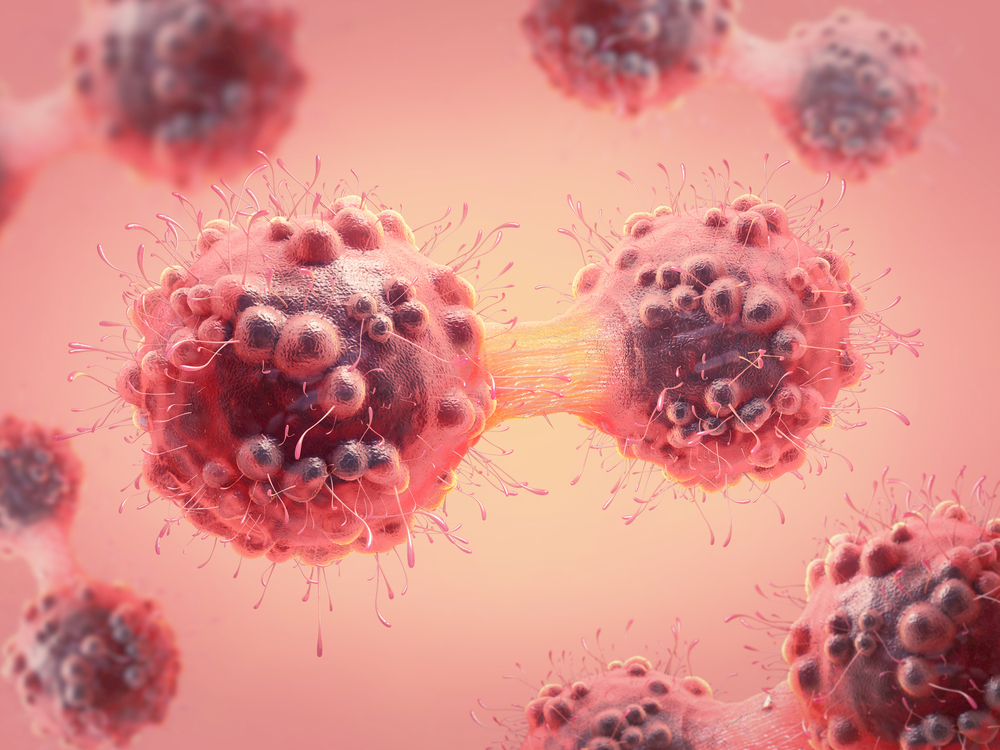
Chronic acid reflux and gastroesophageal reflux disease (GERD) increase stomach cancer risk over time. Persistent stomach acid damage to the esophagus and stomach lining creates conditions favorable for cancer development.
Diet high in salty, smoked, and processed foods correlates with increased stomach cancer rates. These foods contain compounds that may damage stomach lining and promote cancer cell growth.
Helicobacter pylori bacterial infections represent a significant risk factor for stomach cancer development. These bacteria cause chronic inflammation that can lead to cancer over many years.
Family history and genetic predisposition factors play important roles in stomach cancer risk. People with relatives who had stomach cancer should discuss screening options with healthcare providers.
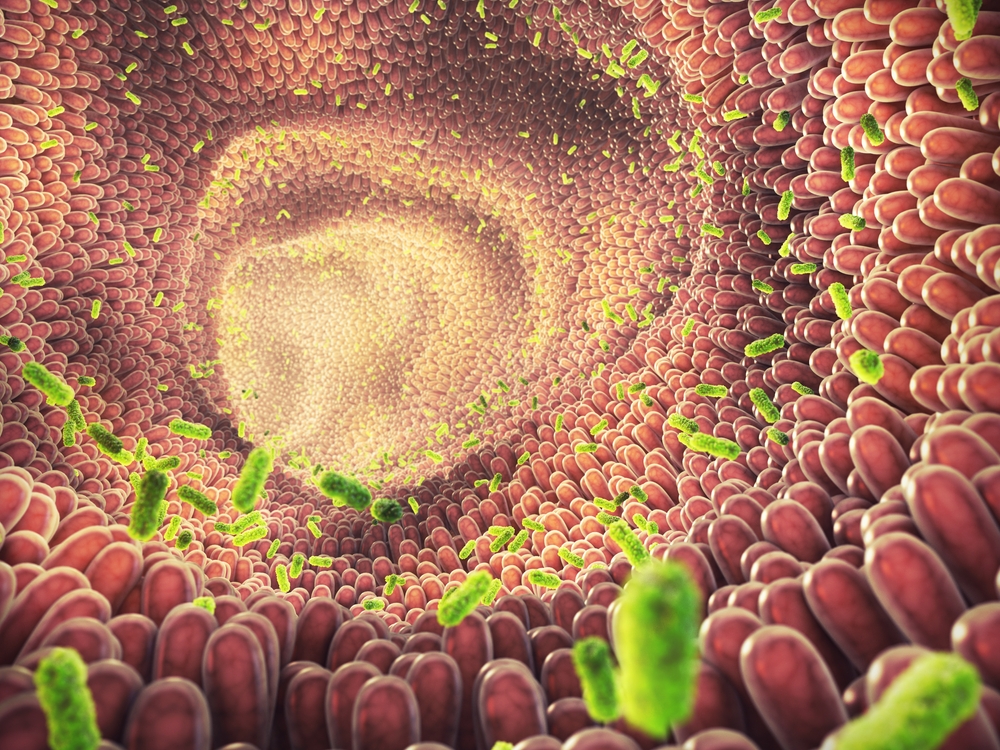
Early Detection Saves Lives Through Screening Programs
Family history of stomach cancer warrants regular screening tests to detect cancer before symptoms appear. High-risk patients benefit from endoscopic examinations that can identify early-stage cancers.
Treatment success rates remain highest when stomach cancer is caught early, before it spreads to other body parts. Small stomach cancers often can be removed completely through surgical procedures.
People with multiple risk factors should discuss screening schedules with healthcare providers. Early intervention dramatically improves treatment outcomes and long-term survival rates.
Regular medical care allows for prompt evaluation of concerning symptoms. Trusting your instincts when something feels wrong can lead to earlier diagnosis and better treatment results.
When to See Your Doctor About Stomach Symptoms
Persistent symptoms lasting more than two weeks require medical evaluation, particularly when multiple symptoms occur simultaneously. Gradual worsening of digestive problems over time indicates need for professional assessment.
Don’t wait for symptoms to become severe before seeking medical care. Early evaluation allows for proper diagnosis and treatment planning when interventions work most effectively.
Healthcare providers can distinguish between common digestive issues and more serious conditions like stomach cancer. Professional evaluation provides peace of mind and appropriate care recommendations.
Katie Slaton’s passing reminds us that life is precious and health concerns deserve immediate attention. Her story encourages others to seek medical care when stomach symptoms persist, potentially saving lives through early detection and treatment.
Loading...

